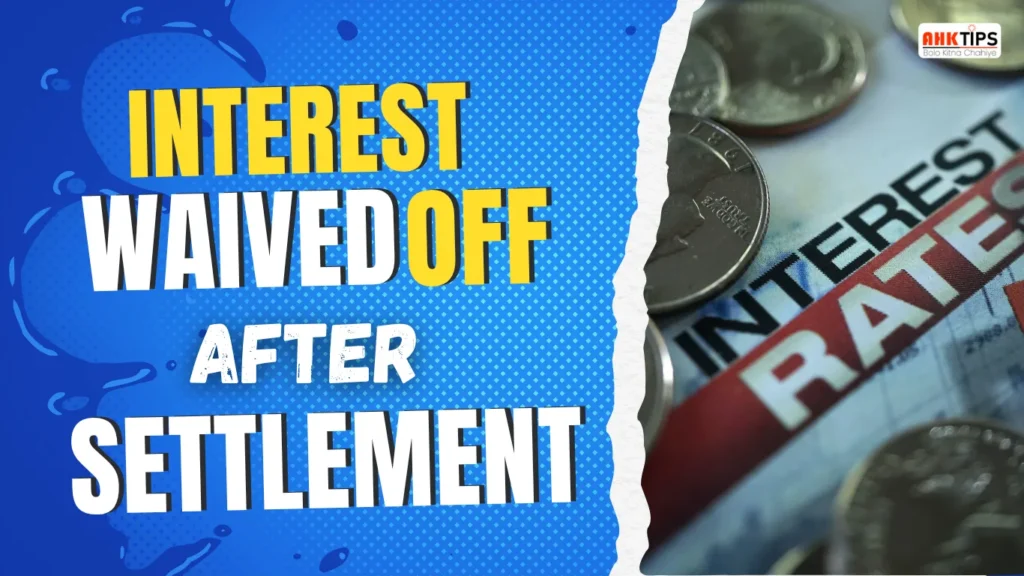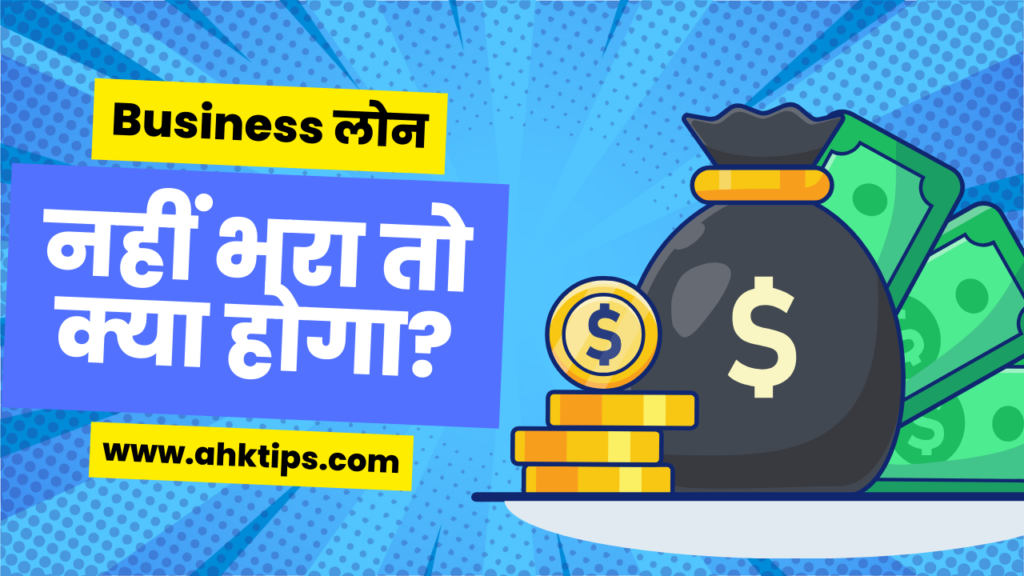Summary
To help borrowers in distress, loan settlement may include waiving some or the entire amount of the interest. Settlement allows borrowers to pay off debt for less than full repayment, where everything, including the interest, is settled. Typically focused on getting back the principal, lenders may waive the accumulation of penalties or interest. Negotiable in unsecured credits like credit cards or personal loans, waivers of interest differ based on lender policy, financial position, and account standing. While NBFCS may have more concessional terms, PSU banks may adhere to the RBI guidelines. With the substantiation of hardship and payment of lump sums, borrowers can negotiate for the release of interest. The settlement should be put in writing. Settled accounts are marked on credit records, but may have an impact on future eligibility for a loan. Being aware of the settlement conditions and implications helps borrowers manage their payments rationally.
Introduction
Numerous borrowers consider loan settlement an escape from loan repayment difficulties. Paying less than the total outstanding amount helps you to close a loan account. One of the key concerns under this strategy is how the interest charged on the loan is treated. Is it still due, paid half, or waived entirely? Understanding how interest is treated upon settlement may influence the way you manage finances. This post explains how lenders treat interest upon settlement, the differences between interest and loan waivers, and how to negotiate an interest waiver.
What Happens to Interest After Loan Settlement?
Quite commonly, a financial consolation when repayment proves difficult is loan settlement. After loan settlement, however, what exactly becomes of the interest? Let us break it down simply here.
Understanding Loan Settlement
Settling a loan involves the lender accepting part of the outstanding balance as final and complete payment. Typically, this happens when a borrower experiences financial hardship and is unable to pay the entire amount due. It is different from paying the entire loan as originally agreed.
What Happens to the Interest?
Interest Is Usually Waived
Most often in a loan settlement, the lender forgives the interest either in part or completely upon loan closure. You may, therefore, not pay the entire interest that had accumulated over time. According to the principle and a smaller fraction of the interest, the lender calculates a lump-sum figure.
Lower Total Payable Amount
The settlement reduces your high debt due to penalties and accumulated interest. The lender can consider your financial situation and agree to waive part of the interest, late payment fees, and other charges.
Full Repayment vs. Loan Settlement
Full Repayment
Under full repayment, you repay the entire loan sum, including all interest, as planned. It keeps you from being marked as a bad account and keeps your credit score healthy.
Loan Settlement
The interest in loan settlement is settled in part through negotiated settlement. This will save you money in the short term, but will decrease your credit score. Settlement reports by lenders to credit bureaus can affect loan approvals in the future.
How Lenders Decide on Interest Waiver
Typically, before waiving interest, the lenders verify your income, job loss, medical emergencies, or other valid reasons. Instead of losing the loan completely, they want to repay at least a portion of it. A signed contract will lay out your payment amount required and the amount of interest waived.
Important to Know
Your credit report can show the loan as “settled,” not “closed,” even after a settlement. This means that some, such as full interest, were not paid. It’s a relief, but not quite like completely paying off a loan.
Does debt settlement call for an interest charge waiver?
One often asked issue when thinking about debt settlement is: Does it eliminate interest? The lender, the amount owing, and your financial status will determine the response. Let’s examine what lenders often offer and how it works.
What Is Debt Settlement?
Debt settlement is the process by which a borrower works with a lender to pay less than the whole owing. Usually, it relates to credit cards or personal loans—unsecured loans. One-time lump sum payment will help to settle the account.
Does Debt Settlement Waive Interest?
Interest Could Be Either Partially or Completely Waived
Generally speaking, debt settlement does involve either totally or partially waiving interest payments. Lenders evaluate your whole outstanding balance, which includes fees, interest, and principal. They might agree to eliminate part or all interest during negotiations so that the payback is more reasonable.
Focus Is on Recovering Principal
If a borrower finds they cannot pay the entire amount, many lenders are ready to cut or waive interest. Rather than pursuing the whole debt, which may otherwise go unpaid, they give up retrieving at least a portion of the principal.
How Lenders Handle Interest in Settlements
Example from Credit Card Lenders
Say you owe ₹ 1,00,000 on a credit card. This comprises ₹40,000 in interest and penalties in addition to ₹60,000 in principle. Under settlement, the lender might consent to close the debt for ₹65,000. Most of the interest and additional charges are thus waived.
Example from Personal Loan Providers
Say you owe ₹2,00,000 for a personal loan, including past-due interest. Should your income decline or you find yourself dealing with medical problems, the lender could settle for ₹1,20,000, therefore negating the remaining interest and penalties.
What Affects the Interest Waiver?
- Your financial difficulty.
- The length of nonpayment.
- Policies on internal lenders
- Past of communication and payment efforts
Important to Know
Debt settlement affects credit score even though it can eliminate interest. Usually reporting the account as “settled” rather than “paid in full,” lenders may have future loan approvals affected.
How Much Interest Can Be Waived in a Loan Settlement?
Understanding the loan settlement interest waiver will help you determine whether you are looking at settlement and find yourself having trouble paying back a loan. Your lender, the type of loan you borrow, and your financial position will decide the answer.
Defines a loan settlement.
Loan settlement is the method through which a borrower collaborates with the lender to complete the loan account with a reduced payment. Typically, this pertains to unsecured debts like personal loans or credit cards. You make a lump payment less than the amount due rather than paying the entire debt.
How Lenders Handle Interest in Settlement
Interest Is Often Negotiable
Generally, in a settlement, lenders will agree to waive some interest to recover at least some of the principal. They aim to limit their losses, particularly where full reimbursement appears unlikely.
Common Settlement Scenario
Suppose your whole outstanding loan balance is comprised of built-up interest combined with principal. If you are facing long-term financial hardship, the lender may waive most of the penalties and interest. Borrowers often pay only the principal or a little more than it requires.
Loan Settlement Interest Waiver: How Much Is Forgiven?
Depending on Lender Policy and Case Severity
Although there’s no standard practice, interest waiver typically ranges from half to the whole. While some of the lenders will waive all interest, particularly where the debt has fallen considerably past due or been designated a non-performing asset, others merely waive half.
- If your financial records evidence genuine hardship
- If you’re several months’ payment
- Should your debt be on the verge of becoming in default?
- Lenders are more lenient in such situations and may grant a greater interest waiver.
Proper Wavers Expectations
Most borrowers who settle pay only 60 to 80 percent of the total amount, so much interest and fees are waived. Your opportunity for a greater waiver is greater with the level of severity of your situation.
Key Considerations
Before approval, lenders normally consider the borrower’s potential for recovery and capacity for repayment. Despite the loan settlement interest waiver being a great relief, remember that settled accounts are not treated equally with fully paid accounts, so your credit score may be affected.
Difference Between Interest Waiver and Full Loan Waiver
Individuals confuse interest waiver with loan waiver although they are not the same. Though the two terms are applied with respect to economic alleviation, they provide somewhat distinct types of relief. Let us break down the meaning of both of them and how it has an effect on loan applicants.
What Is an Interest Waiver?
An interest waiver is the forgiving, either partial or complete, of the interest part of a loan by the lender. However, the principal must be repaid.
When Does This Happen?
Interest waivers commonly take place:
- During difficult occasions such as a pandemic or a catastrophe
- When there is a genuine borrower hardship
- By a loan program or a settlement policy
In such a situation, the lender may cancel interest that has accumulated over a stipulated period. This will ease the repayment without erasing the loan itself.
Example of Interest Waiver
If you take a loan and are underfunded for some months, the lender could consent to getting the interest incurred during this time waived. You would continue paying only the initial borrowed amount.
What Is a Loan Waiver?
In contrast, a loan waiver means that the lender forgives both the interest and the principal. The debt is completely erased here.
When Is a Loan Waived?
- Uncommon as they may be, loan waivers usually arise due to:
- Government programs aimed at low-income individuals or farmers
- Severe economic hardship
- Special relief schemes made by the authorities
Under a complete loan waiver, the borrower is not required to repay any debt; the amount is settled.
Example of Loan Waiver
If a drought renders a farmer unable to repay a crop loan, the government may waive the entire payment. The farmer owes the bank barely any more money in total.
Key Difference: Interest Waiver vs Loan Waiver
While the interest waiver continues to reduce loan costs by waiving the interest, principal repayment of the loan continues.
Both a loan waiver and an interest waiver release the borrower from paying back the principal and interest.
Understanding the distinctions between an interest waiver and a loan waiver can allow borrowers to know what type of relief they are receiving and what is left for them to pay.
Bank Interest Waiver Policies After Debt Settlement
Any individual interested in repaying their loan must be aware of bank interest waivers after settlement. Interest waivers at the time of debt settlement have varying policies based on the banks and NBFCS. Let’s explore what the borrowers can anticipate and how the waivers work.
What is Debt Settlement?
Debt settlement is the agreement where a borrower and lender agree to settle the loan account by paying less than the total outstanding amount. Often, this is done while the borrower is in financial hardship and is unable to repay the full amount.
In such situations, banks may agree to:
- Reduce the principal
- Cut down half or all of the interest.
- Offer an estimate of a lump sum settlement.
- Interest Waiver in Settlements
Not automatic is bank interest waiver after settlement. It depends on the financial status of the borrower, bank policy, and account past due length.
Common Bank Practices
Public Sector Banks: Normally follow RBI policies. If the account is non-performing for a long time, they may waive interest. For debt restructuring, some banks may, for example, forgive interest after ninety days of default.
Although they may still offer partial waivers as part of a negotiated one-time settlement, private banks are stricter.
Especially for unsecured loans, NBFCs may have liberal settlement terms. They do that at times to recover a higher percentage of the total amount, however.
Illustration from Actual Cases
Public notifications by certain banks stating that under specific settlement schemes interest and penal charges may be exempted Certain state-owned banks, for instance, have introduced one-time settlement (OTS) schemes where interest after a given date is not levied.
Factors That Impact Interest Waiver
- Interest waivers happen more often in credit card debt, personal loans, and business loans compared to secured loans.
- The longer the delay, the greater the probability there is of an interest waiver happening.
- When the borrower is truly in financial distress, banks are more lenient.
What to Keep in Mind
Ask specifically if a settlement offer contains a waiver of interest and what percentage of it is being waived. Have this always in writing from the bank. Being aware of the bank interest waiver at settlement allows you to plan payment budgets and avoid credit report shocks in the future.
Can You Negotiate an Interest Waiver in Loan Settlement?
If you’re having trouble paying back debt, loan settlement can be a godsend. But borrowers often ask themselves, Can you negotiate an interest waiver in loan settlement? The good news is that it’s achievable, particularly if you’re experiencing real financial distress.
What Is an Interest Waiver in Loan Settlement?
Interest waiver is an agreement by the bank to eliminate some or all of the added interest charges on your loan. It can be late fees, penalty interest, or ordinary interest accrued as a result of payments being missed.
In loan settlement, the lender may be willing to waive this interest to retrieve at least half of the principal amount.
How to Negotiate an Interest Waiver in Loan Settlement
You do not necessarily have to take the initial offer of the lender. You can negotiate a better offer by explaining your case. This is how you can attempt to negotiate an interest waiver:
Describe Financial Hardship
Lenders will be more willing to waive interest if you’re experiencing job loss, medical emergencies, or other legitimate problems. Offer documentation such as medical bills or layoff letters if necessary.
Request a Breakdown
Ask for a breakdown of your entire outstanding balance. See how much is principal and how much is interest or penalty. This allows you to know what you wish to waive.
Offer a Lump Sum
If you can make a lump sum payment, the bank will be more likely to waive interest simply to close the account. This can be a powerful bargaining chip.
Get It in Writing
If the lender will accept a waiver of interest, ensure that you obtain a written agreement setting out the amount waived and the remaining amount payable. This will cover you from future claims.
What Do Lenders Typically Accept?
Partial interest might be waived by some banks or NBFCs, while others might drop all extra fees but expect the full principal. It is all a matter of your negotiation, your repayment history, and the risk that your case poses to the lender.
Why Negotiation Helps
Negotiating an interest waiver in loan settlement saves you money and repays your loan sooner. It also indicates that you’re open to working with the lender, which can facilitate a smoother transaction and fewer hassles in the future.
Conclusion
Settlement of the amount that you owe, particularly with an interest waiver, will give you financial relief. Lenders waive some or even the entire amount of the interest based on the state of finances, the type of loan, and the record of payment. Although the account is normally marked “settled” but not “closed,” so even with waiver of the interest, settling the loan can influence the credit record. If you are planning to settle, always negotiate in specific terms, insist on writing that confirms, and demand a calculation of liabilities. This is done to maintain openness and secure you from ensuing issues. Knowing how the interest waiver operates and how the bank addresses this will enable you to prepare for economic recovery at the time of settlement more effectively and make wise decisions.
Frequently Asked Questions (FAQS)
Que: Does the settlement of a loan include a waiver of interest?
Ans: Yes, under most situations, lenders waive some or all the interest at settlement, subject to the borrower’s financial situation.
Que: Can I negotiate a settlement’s interest?
Ans: Yes, you may negotiate with the lender to reduce or waive interest, particularly if you show evidence of financial hardship.
Que: Will waived interest impact my credit score?
Ans: In fact, your account can be reported as “settled,” which would lower your credit score even if interest is removed.
Que: Is the loan completely closed after settlement?
Ans: Only if you have a written agreement from the lender. Always get the settlement written up and concluded.













